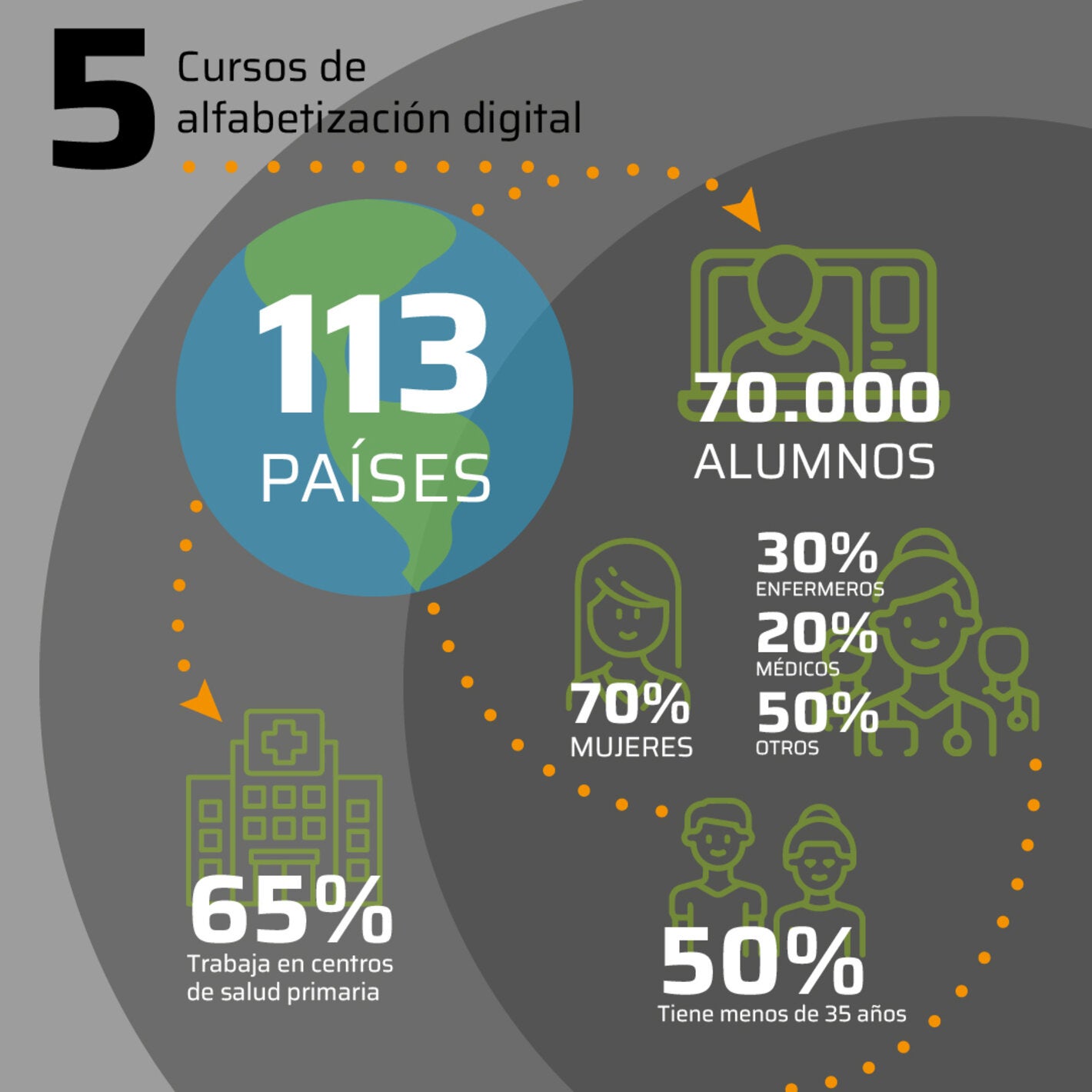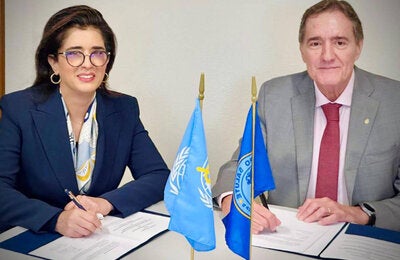
Digital health literacy is key to transforming health systems in the Americas. PAHO underscores its importance in the ethical, safe, and accessible use of ICTs to reduce gaps and improve equity in care. In the digital era, collaboration and interdependence are essential, requiring a holistic approach and renewed public health competencies.
14 May 2025 (PAHO) — In 2021, the 59th Directing Council of PAHO/WHO endorsed the digital transformation of health in the Americas, highlighting the need for access to and interoperability of health information. In response to inequalities in the adoption of digital solutions, the Digital Literacy Program for health sector personnel was launched.
Developed in collaboration with global partners, the program offers training for professionals at all levels of the health system, strengthening their skills in digital tools, data management, and emerging technologies to improve health outcomes. To this end, PAHO has designed a series of courses aimed at enhancing digital capabilities in health.
These educational strategies incorporate innovative tools such as simulation and gaming, offering a dynamic and engaging learning experience for health personnel. The program comprehensively covers the knowledge needed for the implementation of health information systems, with a training offer tailored to suit a variety of professional profiles.
The courses are open-access, free of charge, and self-paced, and are hosted on PAHO’s Virtual Campus for Public Health. This format enhances accessibility, allowing a wider audience to receive training on digital health systems.
The program includes the following courses:
- Introduction to Health Information Systems
- Introduction and Application of the Eight Guiding Principles of Digital Transformation
- Introduction to Interoperability and the FHIR Standard
- Integrating Telehealth into Primary Health Care through Simulation and Gamification
- Change Management for Telehealth Services
To date, more than 70,000 individuals—including physicians, nurses, technicians, engineers, social workers, and many other health professionals—have completed the courses. Participants come not only from the region but also from several countries outside Latin America..
For more information, visit the Virtual Campus website or contact PAHO's EIH team.



